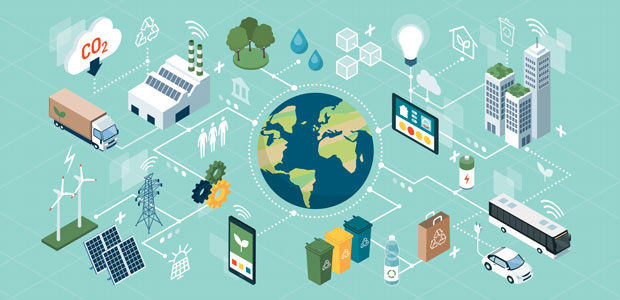
How to be more environmentally friendly in logistics?
Logistics is a fast-growing sector of activity, and mobility is essential to our way of life. At the same time, the supply chain sector is the most significant contributor to environmental pollution. It is the first sector in the emission of greenhouse gases and the first consumer of petroleum products.
Leaving in a world without logistics isn't possible. The food you buy at the grocery shop or your goods purchased at Amazon and delivered to your door. The vaccines distributed to vaccination hubs, the fuel you put in your vehicle, or those clothes you bought from China. All those activities were affected by the supply chain sector at some point in the process.
Leaving in a world without logistics isn't an option. So, what must logistic and supply chain companies do to decrease their impact on the environment?
The environmental impacts of logistics
Logistics transportation emits high greenhouse gas emission rates. Transport and road traffic, in particular, produce fine particles that pollute the outside air, which is dangerous to humans and ecosystems.
Besides road transportation, the environmental impacts of sea freight can be equally catastrophic. Sinking ships and oil spill disasters can have irreversible consequences on the ecosystem of oceans and sea coasts. This year, the most recent case occurred when a cargo ship carrying thousands of luxury cars to the U.S. sank in the mid-Atlantic ocean.
This is important to understand that when ships are abandoned in the ocean or sink due to catastrophic failures, they inevitably impact the surrounding environment. Because when large vessels scrape the seafloor, they can damage over 10,000 square feet of ocean habitat. As a result, aquatic species are threatened, and it is to be feared that some of them will disappear in the long term.
Another environmental impact connected to the logistics and supply chain sector is the excess and wasteful packaging attached to the industry. That contributes to more waste incineration activities that help produce harmful gases that affect the environment and increase the amount of plastic thrown in the ocean every day.
How can logistics reduce environmental impact?
We all know how logistics isn't known for its high level of sustainability in the industry. Still, green logistics, also known as environmental logistics, aims to reduce the carbon footprint of logistics operations, lower air, soil, sound, and water pollution, and use raw materials sensibly.
So, what are the logistics and supply chain sectors' measures to reduce the environmental impact caused by the industry?
Optimise Routes
Route optimisation software can analyse critical logistics issues such as vehicle availability, traffic conditions, and labour availability for loading and unloading. Logistics operations can optimise and streamline routes to reduce carbon emissions with automated route planning.
Sustainable packaging
Create an eco-friendly supply chain that improves your profit margin and reduces the environmental impact of logistics operations. Change your regular plastic packages to biodegradable ones. Use paper tapes, recycled materials, newspapers, air peanuts, and seaweed packaging. Using sustainable packaging will be good for the environment and good for your business. It can reduce transportation costs, expand your customer base and improve your brand image.
Ensure materials are recycled
Encourage your shipment's recipients to recycle all appropriate packaging when delivered to the final destination. Put clear instructions in your correspondence with them or print instructions directly on your packaging, so the recipient knows what material can be recycled and how they can do so.
Kitting and reducing packaging
Use the kitting process to compile individual items or components parts into a ready to ship package instead of sending 7 different products into 7 separated packages. This will reduce costs not only for you and your company but also for your customers.
Can you think of any other environmental strategy you can implement for your company? Leave a comment below and let us know!


